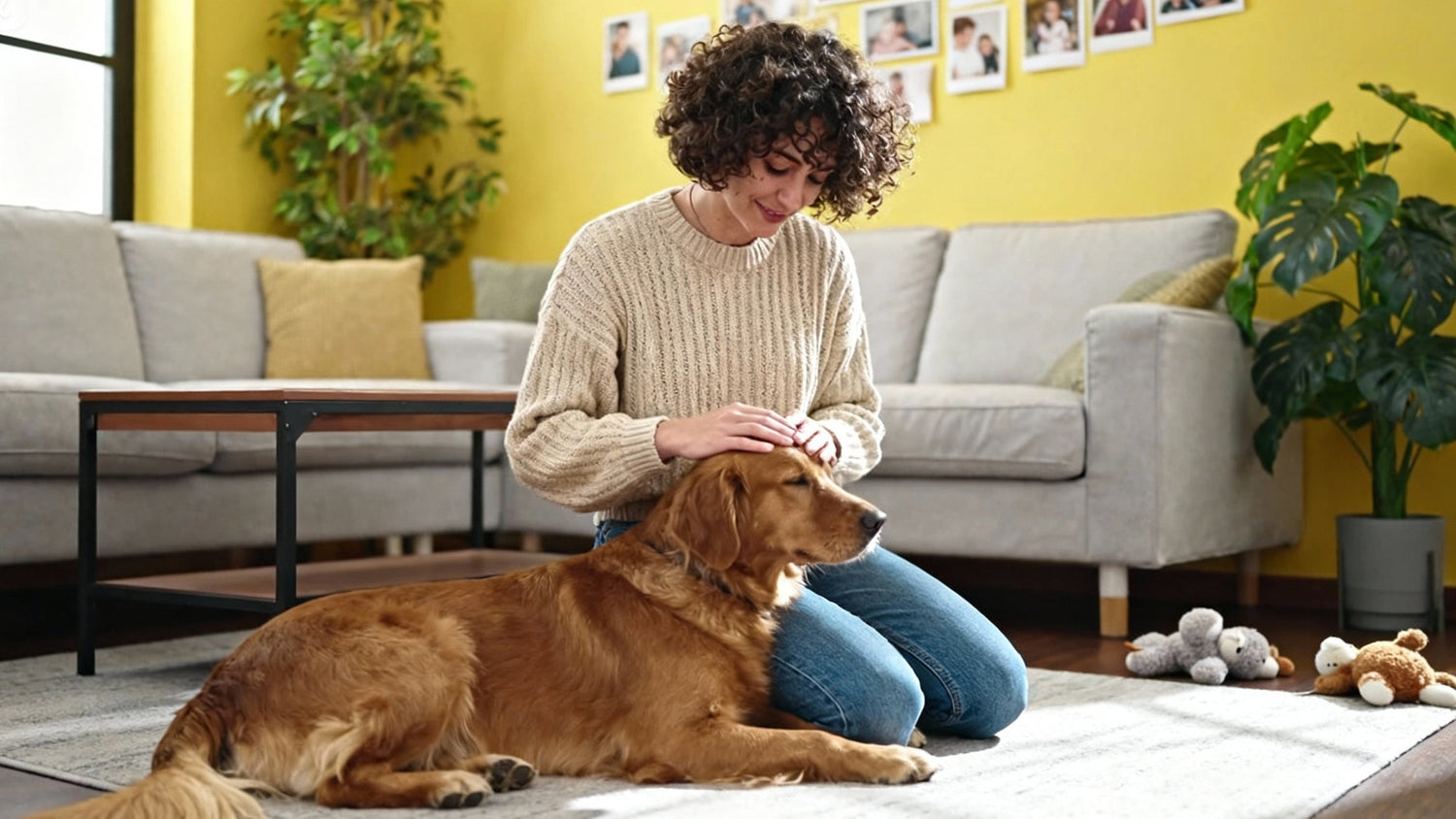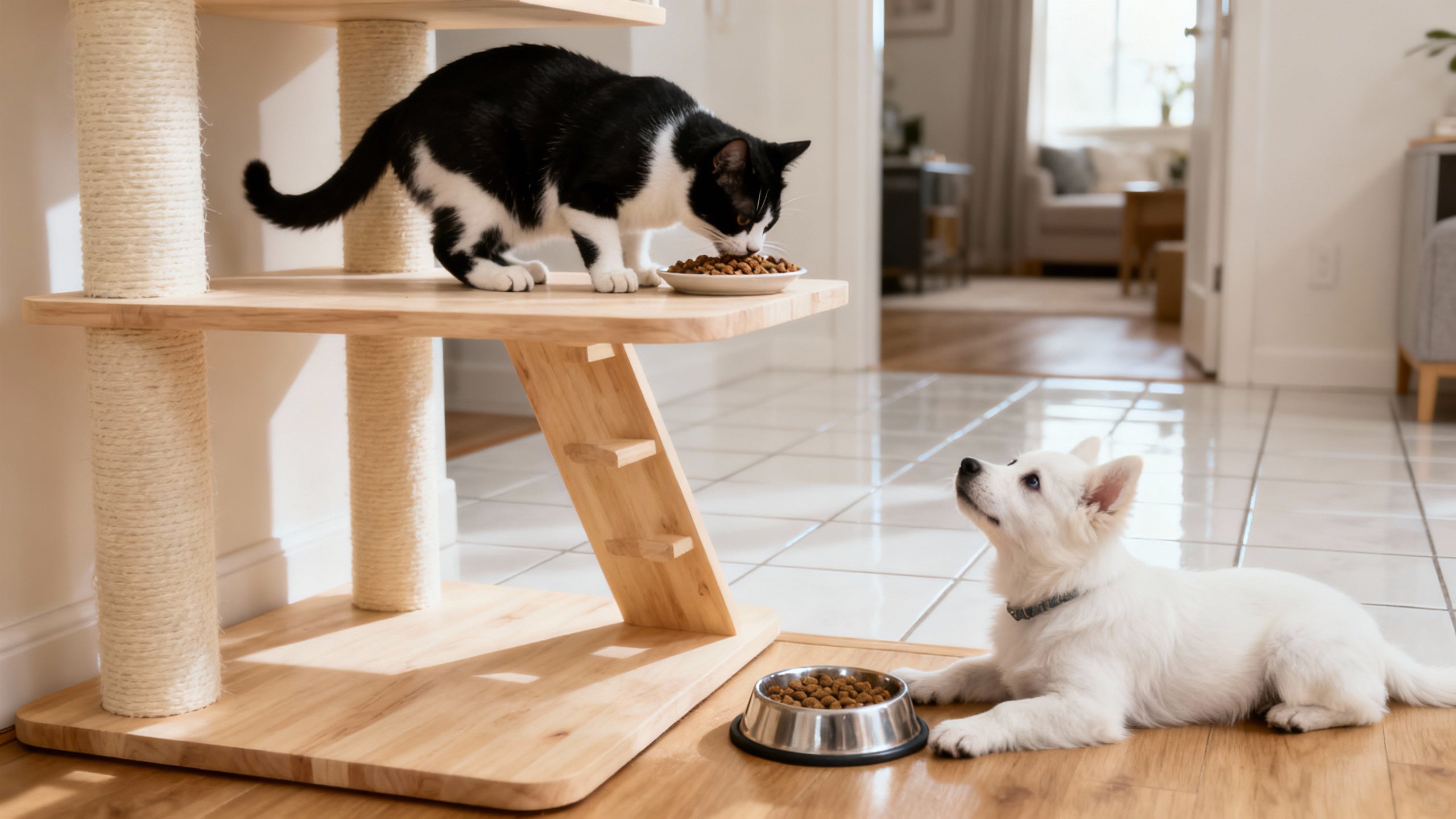It is heartbreaking to watch your dog suffer from a bad stomach. The vomiting, diarrhea, or not wanting to eat is not a small problem. It is a clear sign that something is wrong. Caring for a dog with a sensitive stomach can feel like a lot. But you do not have to do it alone. This full guide will give you a clear, step-by-step plan. It will help you manage your dog's problem. And it will bring comfort and health back to their life.
Does Your Dog Have a Sensitive Stomach?
The first step is to know the common signs. Any dog can get an upset stomach sometimes. But a "sensitive stomach" usually means a problem that happens often. If you see a pattern of these behaviors, it is a strong sign that your dog needs digestive help.
Common signs include:
- Vomiting or Diarrhea That Comes and Goes: This does not mean it happens every day. But it means it happens on a regular basis.
- Loose or Inconsistent Stools: Their poop is often soft. Or it is not well-formed.
- A Lot of Gas (Flatulence): All dogs have gas. But a sensitive stomach can lead to very frequent and smelly gas.
- Not Wanting to Eat: They may not be interested in food. Or they may refuse food they used to like.
- Loud Gut Sounds: You might hear loud gurgling noises from their belly, especially after they eat.
It is very important to know when to get professional help. You should call your veterinarian right away if your dog has bad vomiting or diarrhea for more than 24 hours. You should also call if there is blood in their stool, if they are very tired, or if they refuse to drink water.
Common Causes of a Sensitive Stomach in Dogs
You need to understand the possible cause of your dog's problem. This is the key to finding the right solution. Stomach problems can come from many things.
Dietary Indiscretion (They Ate Something They Shouldn't Have)
This is the most common reason. Dogs often eat things that are bad for them. They might get into the trash or eat something on a walk. This usually causes a short-term problem.
Food Allergies or Intolerances
Dogs can be sensitive to certain foods, just like people. The most common problem foods are proteins like beef or chicken. Selecting the right protein source is crucial for dogs with food sensitivities. But some dogs also react to grains like wheat. An intolerance usually causes stomach upset. A real allergy might also cause skin problems like itching.
Sudden Diet Changes
Changing your dog's food too quickly can shock their system. It can lead to stomach problems. You should always change their food slowly over 7-10 days. This lets their stomach get used to the new food.
Stress and Anxiety
A dog's stomach health is connected to how they feel. Big life changes or being scared of being alone can show up as physical problems. These can include diarrhea and vomiting.
Manage Your Dog's Diet
What you feed an animal is the greatest thing you can do for them. Taking care of them will make their stomach healthier. They can also receive more nutrients to aid them.
Choosing the Right Commercial Dog Food
Choosing the right dog food for a sensitive stomach is not always an easy task. Be sure to select dog food for a sensitive stomach with simple ingredients. Pick dog food for a sensitive stomach with a small number of fine ingredients. This makes it easier to identify the problem. Special diets with new protein sources (like duck or fish) are remarkably often helpful.
The Bland Diet: A Short-Term Fix for Upset Stomatachs
If the vomiting or diarrhea is severe in your dog, then your vet can recommend a bland diet for a few days. This will allow the stomach to rest. One very simple recipe is boiled plain chicken breast mixed with cooked white rice. You can also put in a little spoonful of plain canned pumpkin. This will make the poop harder. This is only to be used for a few days.
The Elimination Diet: Finding the Culprit
The best way to know whether you've got a food allergy with the dog is to implement an elimination diet. Do this under the guidance of the vet. That's where you put the dog on an all-new protein and new-carb-only diet for 6 to 8 weeks. If the problem goes away, you can then slowly introduce old ingredients one at a time. This will identify the guilty food.

Feeding Habits and Lifestyle Changes
The way that you introduce the food to the dog can be equally important to the actual thing you introduce. Some small changes can be hugely important.
Slow Down the Gobbling: The Magic of Slow-Feeder Bowls
Dogs that eat too fast consume a lot of air. Vomiting and gas can be the outcome. A slow-feeder bowl is filled with bumps and maze-like places within. This forces the dog to eat more slowly. This also keeps feeding time fun.
Small, Frequent Meals vs. One Big One
You can also try dividing their ration within the day into four small meals. They ought not to be given one or two large meals each day. This is less taxing on the belly. A high-protein balanced ration like PetCoolGo GoCore™ Dog Dry Food is ideal for giving them energy in small but manageable to digest meals.
Manage Stress, Manage the Stomach
You should give your dog a peaceful and unvarying home life. Make sure that they get plenty of regular gentle exercise. This is perfect for the mind and the stomach. Make sure that you also give them a peaceful and sheltered feeding area.
Safe Treats and What to Avoid
Treats can easily cause problems again. You should stick to treats with only one ingredient, like dried sweet potato slices.
You should never give your dog:
- High-fat foods (like table scraps or bacon)
- Dairy products (many dogs cannot digest them)
- Human foods that are poison to dogs, like onions, garlic, grapes, and chocolate
Caring for a Sensitive Stomach: Diet, Routine, and Vet Partnership
Taking care of a dog with a sensitive tummy requires patience and a good strategy. You will be able to take care of their issue by finding the right grub, establishing proper feeding routines, and collaborating with your vet. The payoff is quite large. You will end up with a comfortable and happy dog with a healthy belly. And you will be closer to your best buddy.
Frequently Asked Questions About Dogs with Sensitive Stomachs
How long does it take for a diet change to work?
Patience is required. At least 4-8 weeks will be needed for the dog's stomach to adjust to the new food. Then you will see an actual improvement.
Are grain-free diets better for sensitive stomachs?
Not necessarily. Certain dogs are sensitive to grains. Food allergies are more often associated with proteins. Can't take "grain-free" on faith without consultation with your vet.
Can I give my dog human anti-diarrhea medicine?
Under no consideration. You must never administer any human medication to your dog except on the advice of your vet. Human medicines are normally harmful to dogs.




Leave a comment
This site is protected by hCaptcha and the hCaptcha Privacy Policy and Terms of Service apply.